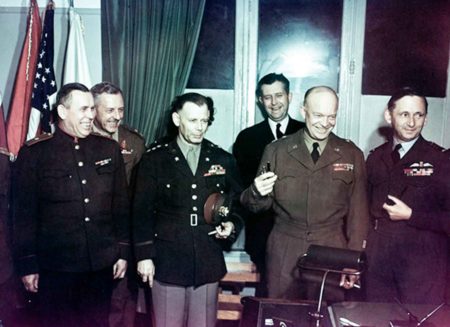By 1944, the war wasn’t going well for Hitler and his military. In fact, a year earlier, people began reaching the conclusion that Germany might eventually lose the war. How was it that within less than five years after conquering almost all of Europe that Hitler’s armies, navy, and air force were on a downward spiral toward defeat? There were many reasons including what historians now chalk up to the Führer’s military decisions that were huge strategic mistakes. However, during the early years of World War II, it seemed as though the German juggernaut was invincible and leading the pack was Hermann Göring’s Luftwaffe (i.e., the German air force).
Göring was so confident of his pilots and planes and their supremacy in the sky that he vowed Germany would never be bombed. Addressing the Luftwaffe when the German air force was at the peak of its power, the antisemitic and future generalfeldmarschall and Hitler’s second-in-command made this promise to the German people:
“No enemy bomber can reach the Ruhr (valley). If one reaches the Ruhr, my name is not Göring. You may call me Meyer.”
⏤ Hermann Göring
September 1939
As Allied air forces increased their bombing activities over Berlin and the Ruhr Valley in early 1944, air raid sirens in the city were going off on a nightly basis. It didn’t take long for Berliners to begin calling the sirens, “Meyer’s Bugle.”
Did You Know?
Did you know that the last surviving female agent of the British-led Special Operations Executive (SOE) passed away in October 2023? Phyllis “Pippa” Latour, MBE (1921−2023) was born in South Africa to a French father and British mother. She spoke fluent English and French along with Arabic, Swahili, and Kikuyu. After war broke out, Phyllis joined the British Women’s Auxiliary Air Force (WAAF) and became a balloon operator and mechanic. In 1943 she applied to and was accepted by the SOE’s F Section. Dropped into Normandy, France in early May 1944 as a wireless operator, Phyllis (nom de guerre: Geneviève) was part of the D-Day underground support forces behind enemy lines and she was responsible for gathering and transmitting intelligence on German positions as well as landing sites for equipment air drops. Read More Meyer’s Bugle


